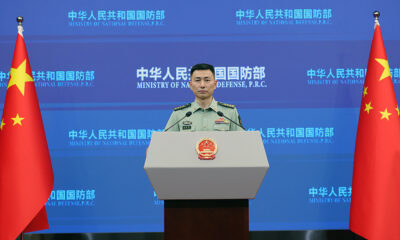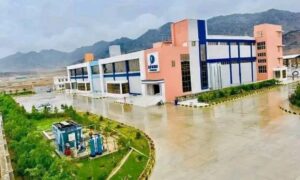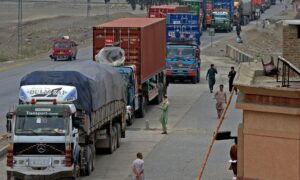Business
‘Digital Silk Road’ on track as Afghanistan and Turkmenistan connect

Thursday marked another milestone in Afghanistan’s modern history when President Ashraf Ghani inaugurated the new fiber optic connection between Turkmenistan and the commercial port of Aqina in Afghanistan’s Faryab province.
Within four months of having signed the memorandum of understanding with government the Afghan Wireless Communication Company (AWCC) had successfully completed the task of connecting the two neighboring countries.
In a virtual address at the launch, Dr Ehsan Bayat, the founder and chairman of AWCC, said he was “delighted” to celebrate the company’s success in connecting Afghanistan with its friends in Turkmenistan – especially given the past year that has involved unprecedented challenges due to the coronavirus pandemic, which also impacted people’s ability to connect with each other across the globe.
“When Afghan Wireless embarked on the journey to build Afghanistan’s largest nationwide fiber network, we did so with the goal of realizing President Ghani’s vision to transform the country into a hub of digital data connectivity for Central Asia.
“Today marks an important milestone in the building of a digital silk road across the region with Afghanistan at its center; a road that will connect millions of Afghans to the digital economy.
He said the latest optical fiber connection, between Afghanistan and Turkmenistan, is the country’s fifth and sixth international border connections. Others include Tajikistan, Uzbekistan, and Pakistan.
“From Mazar to Jalalabad, and from Kabul to Kandahar to Kunduz, communities across the country are benefiting from high-speed connectivity. And now our connection to Turkmenistan through Torghundi and Aqina will enable Herat and western cities to become Afghanistan’s next major bridge for digital transformation,” he said.
However, Bayat stated that the impact of AWCC’s project should not be measured in kilometers of fiber laid, or megabytes of data transmitted, or even money invested but instead, it should be measured by the industries revitalized, the local businesses boosted, the jobs created, the pace of economic development and the enhancement to critical services in health, education, commerce and finance.
“This project could not be delivered without Afghanistan and Turkmenistan working together.
“Afghan Wireless’ optical fiber connection between the two countries that we are celebrating today is a powerful testament that when we work hand in hand with our neighbors, not only do we strengthen our countries individually, but we also strengthen our region together,” he said.
The Turkmenistan to Aqina cable has the capacity to transfer 2,500 megabits of the Internet and can therefore provide high quality and cheap Internet to Faryab province.
According to the Ministry of Communications and Information Technology, a fiber-optic network is the result of the rapid development of telecommunications and information technology, which has become an integral part of modern life.
The ministry states that along with the progression of technology and innovation, the shape and quality of tools have also changed to a great extent.
At the beginning of the invention of the telephone, copper cables were used to transmit information and sound, but today, with the advancement of technology and increasing human needs, these cables have been replaced by a new generation of signal conductors or fiber optics.
Because of the need for fast and cheap digital connectivity in the country, Government has already connected a total of 25 provinces in the country with the national fiber-optic network.
Business
$23 million pharmaceutical company opens in Kabul
The Islamic Emirate officials also stated that while they fully cooperate with pharmaceutical companies, these manufacturers need to produce drugs that meet international standards.
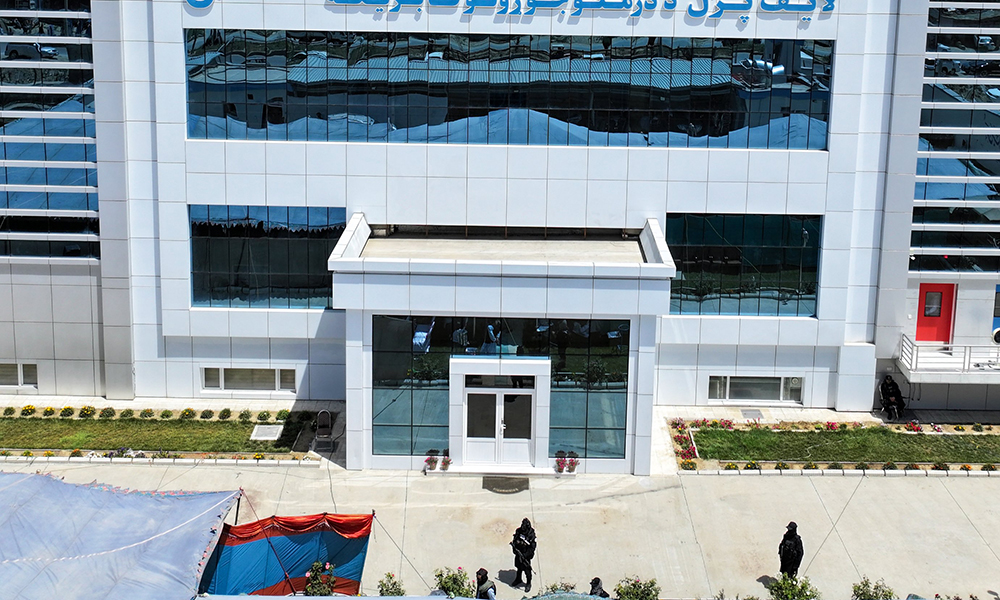
A new pharmaceutical company, costing $20 million, was officially opened on Thursday in Kabul in the presence of Islamic Emirate leaders, including Deputy Prime Minister for Economic Affairs Mullah Abdul Ghani Baradar.
The new company will reportedly manufacture 50 different types of drugs once fully operational.
Addressing the launch ceremony on Thursday, Baradar outlined the importance of quality in terms of pharmaceuticals and said poor-quality drugs threaten lives while good-quality medicines can save lives.
Baradar also pointed out that more manufacturing companies like this will help grow the country’s economy.
He once again called on investors, both in the country and abroad, to help in the reconstruction and development of the country and start businesses. He also said the way has been paved for them to invest and that they should make use of the opportunities available.
Health officials meanwhile said that currently there are 77 pharmaceutical companies in the country and that serious efforts are being made to make the country self-sufficient in this regard.
The Islamic Emirate officials also stated that while they fully cooperate with pharmaceutical companies, these manufacturers need to produce drugs that meet international standards.
Related Stories:
New medicines manufacturing company established in Nangarhar

Kandahar officials inaugurate $50 million pharmaceutical company
Business
Sugar exports to Afghanistan resume after four year break
Islamabad banned the export of sugar to Afghanistan four years ago to address shortages and control prices in the country.
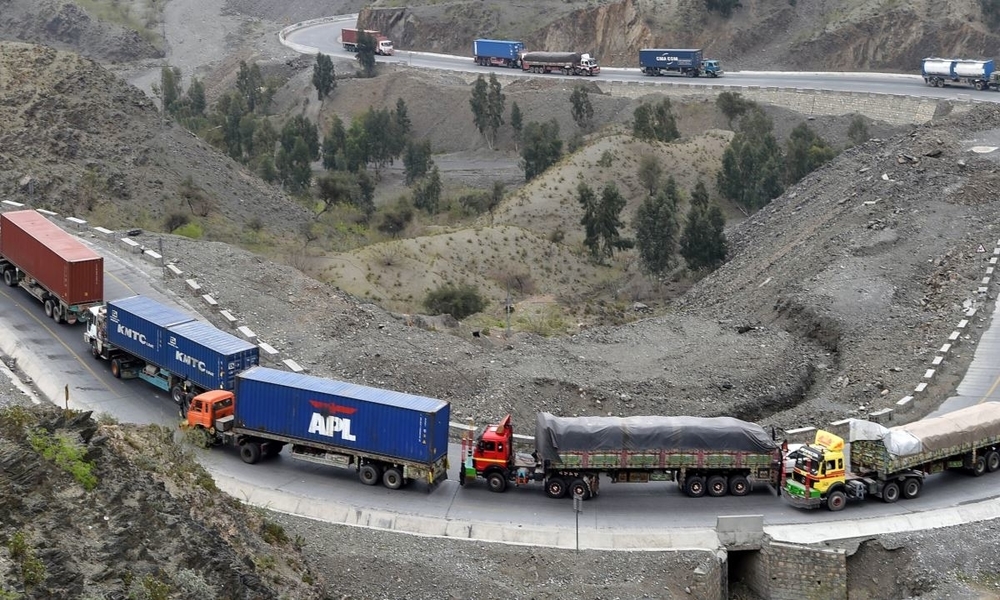
Sugar exports from Pakistan to Afghanistan resumed this week after a four-year suspension, with over 400 vehicles crossing the Torkham border in the last four days.
According to Pakistan sources, Islamabad recently agreed to the export of 150,000 tons of sugar to Afghanistan, setting an August 15 deadline for the completion of the shipment process.
Customs clearing agents at Torkham said around 100 vehicles, each carrying 33 tons of sugar, crossed into Afghanistan four days ago and more thereafter.
Islamabad banned the export of sugar to Afghanistan four years ago to address shortages and control prices in the country.
Related Stories:
Volume of imports from Pakistan has declined: official
Import, export volumes total $7.5 billion in 1st nine months of this solar year
Business
Chinese keen on investing in Afghanistan’s solar power sector
At the same time, the deputy minister welcomed their interest and stated that Afghanistan is a place of opportunities for investment and that the ministry is ready to cooperate.
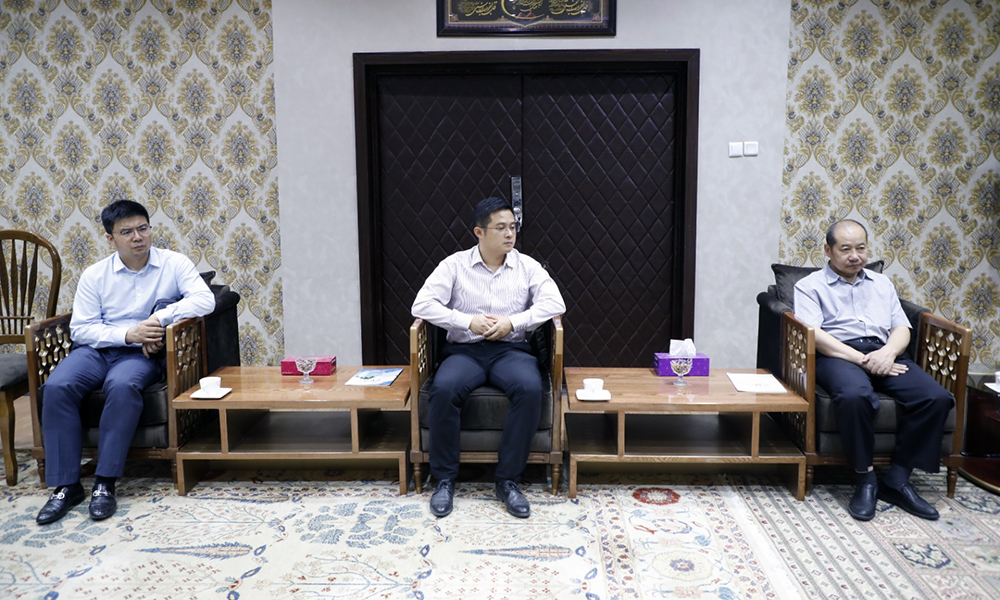
The Ministry of Industry and Commerce says that Ahmadullah Zahid, deputy minister, met with a number of Chinese investors in his office on Tuesday.
According to a statement issued by the ministry, Ehsanullah Shahab, the head of special economic zones, was also present in this meeting, where investors from China expressed their interest in investing in solar power generation and agriculture technology sectors.
At the same time, the deputy minister welcomed their interest and stated that Afghanistan is a place of opportunities for investment and that the ministry is ready to cooperate.
Related Stories:
Chinese keen to invest in Panjshir-Kabul water conduit project

120 Chinese companies held investment talks with IEA since takeover
-

 Sport4 days ago
Sport4 days agoOlympics finally here; What you need to know
-

 Latest News5 days ago
Latest News5 days agoOCHA reports 110 die in landmine explosions in Afghanistan every month
-

 Regional5 days ago
Regional5 days agoChina braces for twin tropical cyclones after deadly flash floods
-

 Health4 days ago
Health4 days agoHealth partners provide services 589,205 people in Afghanistan in last month
-

 Latest News4 days ago
Latest News4 days agoAfghanistan’s Hajj ministry confirms death of 27 pilgrims in Mecca and Medina
-

 Business5 days ago
Business5 days agoConference on Islamic microfinance kicks off in Kabul
-

 Sport4 days ago
Sport4 days agoACB proposes ODI fixtures against top-tiered teams
-

 Latest News4 days ago
Latest News4 days agoIslamabad claims three terrorists killed at Pakistan-Afghanistan border












